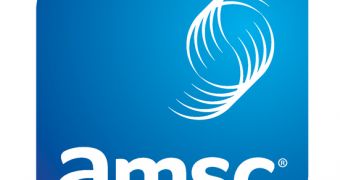A Chinese company that manufactures and exports wind turbines, two of its employees, and a man who worked for a subsidiary of AMSC (formerly known as American Superconductor), are accused of stealing trade secrets from AMSC and causing losses of over $800 million (€612 million).
China-based company, Sinovel Wind Group; 36-year-old Su Liyin, who worked as the company’s deputy director of R&D; 33-year-old Zhao Haichun, a technology manager at the company; and 40-year-old Serbian national Dejan Karabasevic, the head of the automation engineering department at AMSC Windtec in Klagenfurt, Austria, have been charged.
According to the US Department of Justice, each of the defendants has been charged with one count of conspiracy to commit trade secret theft, theft of trade secrets, and wire fraud.
Sinovel purchased software and equipment from AMSC. By March 2011, the Chinese company had already owed the US company over $100 million (€76 million) and had entered definitive contracts to purchase additional products and services worth another $700 million (€536 million).
Prosecutors allege that the four suspects conspired to steal trade secrets from AMSC that would allow them to develop their own wind turbines and retrofit existing ones with AMSC’s Low Voltage Ride Through (LVRT) software.
Su and Zhao are said to have convinced Karabasevic to leave AMSC Windtec and join Sinovel, but not before copying the software source code developed by AMSC.
"The Sinovel case is a classic example of the growing insider threat facing our nation's corporations and their intellectual property,” noted FBI Executive Assistant Director Richard McFeely.
“The FBI will not stand by and watch the hemorrhage of U.S. intellectual property to foreign countries who seek to gain an unfair advantage for their military and their industries,” he added.
“We are actively working with our private sector and government partners to disrupt and impact those who have made it their mission to steal U.S. military and corporate secrets. Since 2008, our economic espionage arrests have doubled; indictments have increased five-fold; and convictions have risen eight-fold.”

 14 DAY TRIAL //
14 DAY TRIAL //